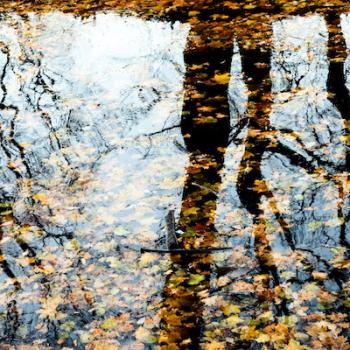
I’m constantly amazed how certain religious myths map onto human psychology. Psychologist Gabor Maté wrote a book called In the Realm of Hungry Ghosts, where he describes his years working in a notorious neighborhood of Vancouver which has one of the highest concentrations of drug users not just in Canada but all of North America.
The metaphor in the book’s title struck me: The “realm of hungry ghosts” comes from Buddhism. Specifically, it’s one of the six realms depicted in Tibetan Buddhism’s bhavacakra, or “Wheel of Life,” which illustrates the cyclical journey of reincarnation in Buddhist cosmology.
On the wheel, the “realm of hungry ghosts” (preta) is the realm just before “hell” (naraka). These ghosts are depicted with huge bellies and shrunken limbs. They run towards streams only to find them dry when they arrive. They hunger for food, but when they get it, it turns to ash or molten fire in their mouths. The rare times they get what they want, it causes them great agony. Metaphorically, this realm depicts addiction in all its forms.
This realm can be thought of either as a temporary state of mind (infatuation, compulsive desire for a new car, getting “hangry”) or it can be an engrained life-pattern: your life is run by addictive cycles whether it’s video games, porn, sexual attention, social prestige, or probably the most socially-acceptable addiction: workaholism.
Zooming out, we can consider the Tibetan Wheel of Life as a metaphor for human mental states which arise from previous states. The “karma” of our thoughts from one moment to the next lead to the “reincarnation” of our mind in better or worse “realms.” Thoughts of unbridled desire leads to obsession. Obsessive thoughts leads to torturous monologues and pain, “hell.” On the other hand, compassionate thoughts may leads the mind to a tranquil realm. Grateful thoughts might lead to joy and pleasure. The relinquishment of all desires and attachments, as Buddhism suggests, leads to an enlightened state, the realm of “nirvana.”
Psychologically, a reason people might get “stuck” in the realm of hungry ghosts is that they refuse to descend into the next realm: hell. In other words, we refuse to confront the core emotional pain that our addictive behavior serves to soothe. In the opening of his book, Gabor Maté writes about a patient whose father ingrained in him and his twin brother that they were both “pieces of shit.” His brother killed himself as a teenager. The patient himself turned to heroin and crystal meth. He says: “The reason I do drugs is I don’t want to feel the fucking feelings I feel when I’m not on drugs.” Unable to confront the deep wounds of his upbringing, he remains in the realm of addiction.
Hell is a feeling. The more intense the hell—the pain and anguish at our core—the more intense the addiction we may use to soothe those terrible feelings. Veterans returning from war, sexual trauma survivors, victims of emotional or physical abuse, those haunted by their conscience, may turn to alcohol, drugs, sex, food, status-climbing—whatever works—to numb and forget. If we are unwilling or unable to confront the intense pain of our personal psychological hell, we become stuck in the realm of hungry ghosts: the realm of denial, escape, addiction.
There is a greater point Gabor Maté is driving at with his book’s title: it’s not just his drug-addicted patients but our entire society that’s stuck “in the realm of hungry ghosts.” We celebrate workaholics, alcohol, sex-as-status, sex-as-“feeling-OK-about-myself,” non-emotional masculine heroism, compulsive acquisition of money, compulsive spending of money, gambling at casinos, gambling on the stock market, all manner of adrenaline-addiction, video games, motorsports—even spirituality, if pursued in an ungrounded way, can become an addictive form of bliss-seeking.
All these activities can be engaged in non-addictively. But all too often, we engage in these behaviors as a way to soothe our pain instead of confronting it.
Ask yourself: “what hell am I avoiding?” “What am I not confronting in myself?” We have built a society that encourages endless self-soothing instead of confrontation with the anguish and pain within us. If great addiction hides great pain, then the empire of pleasure, self-gratification, and distraction we have built up suggests our society stands on a foundation of immense pain. We might understand that intellectually by glancing at our history, but understanding it emotionally is something else entirely.
What keeps us from confronting it is not only pleasure-seeking but the protective shell of hatred. I think hatred is one of the greatest unspoken forms of addiction. I suspect that when we hate, we are in part protecting ourselves from our own painful culpability—what disgusts us most in others tends to be the shadow we deny within ourselves.
James Baldwin wrote: “I imagine one of the reasons people cling to their hates so stubbornly is because they sense, once hate is gone, they will be forced to deal with pain.”
We all get stuck, either momentarily or cyclically, in the realm of hungry ghosts. What the Tibetan Wheel of Life suggests is that the only way out of this realm is to progress through the Wheel and pass through the next realm: hell. The only way out of pain is through pain, just as flames purify gold. If we cannot confront the deep anguish we harbor within our individual and collective souls, we will keep denying it and compulsively fill our bellies with empty pleasures like the suffering ghosts on the Wheel of Life, and will never find true satisfaction, much less peace.
Subscribe to The Spiritual Naturalist Society
Learn about Membership in the Spiritual Naturalist Society
__________
The Spiritual Naturalist Society works to spread awareness of spiritual naturalism as a way of life, develop its thought and practice, and help bring together like-minded practitioners in fellowship.

















